Detail of Il Consiglio alla Vendetta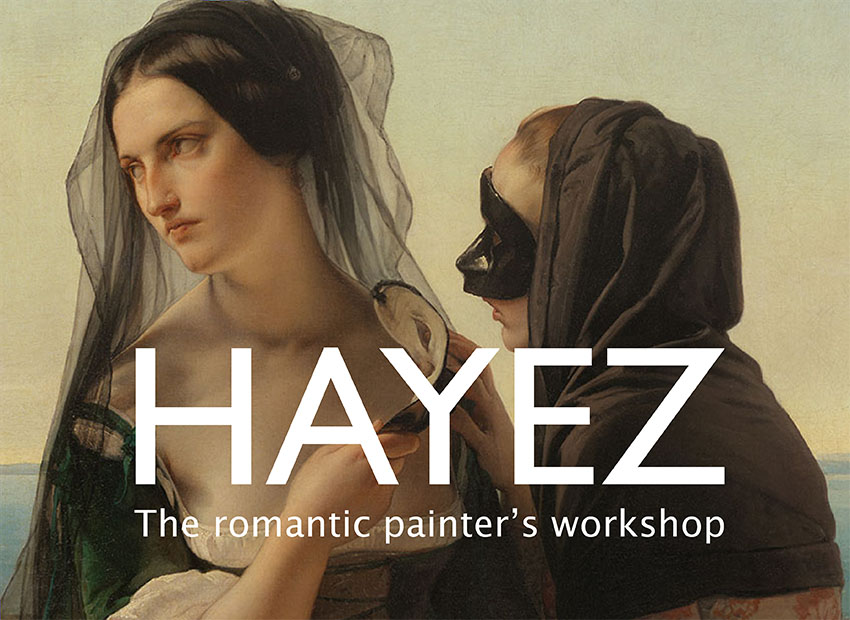
17 October 2023 – 1 April 2024
GAM – Galleria Civica d’Arte Moderna e Contemporanea, Turin
In this exceptional exhibition on Hayez, more than 100 works covers his entire life as one of the most important representatives of romanticism, the faces of the people depicted in his works stand out with a masterful expressiveness that reveals the inner dimension of the character.
This article performs a detailed visual analysis of the outstanding
aspects of the works, ending with the most impressive: the face.
HIGHLIGHTS
Accusa segreta
Francesco Hayez. Accusa segreta. 1847-1848. Olio su tela, 153 x 120 cm
Pavia, Musei Civici del Castello Visconteo
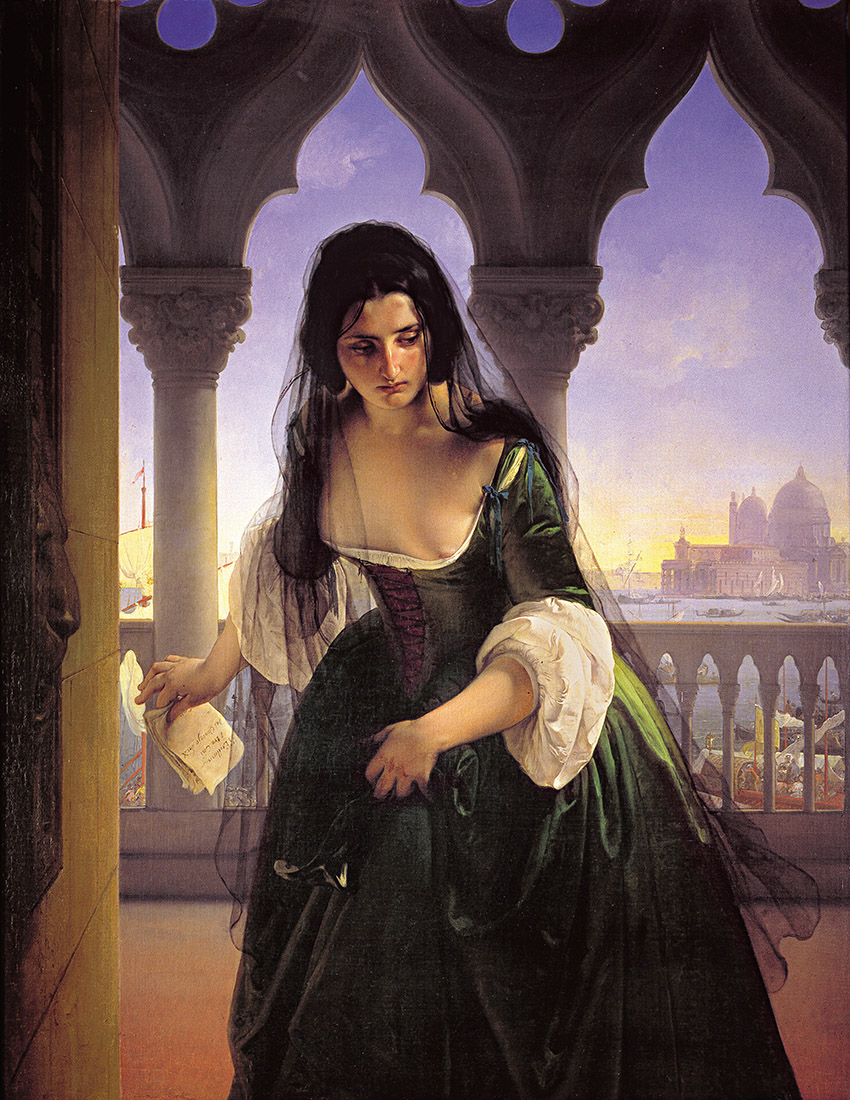
Accusa segreta: detail of figure and clothing
In the pictorial enhancement of the clothing, Hayez reveals himself to be an unsurpassed
interpreter of the most secret and restless soul of the Romantic period.
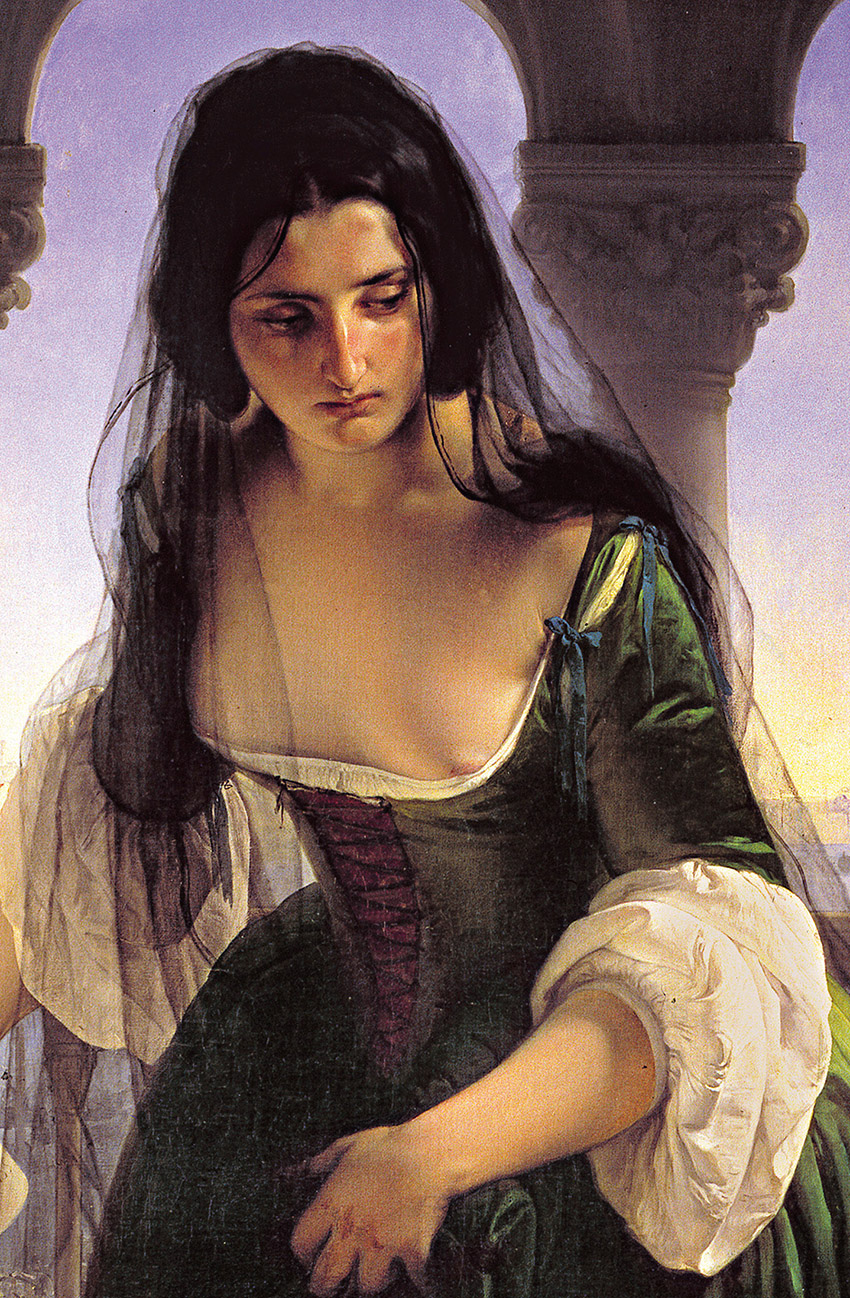
Accusa segreta: detail of the face
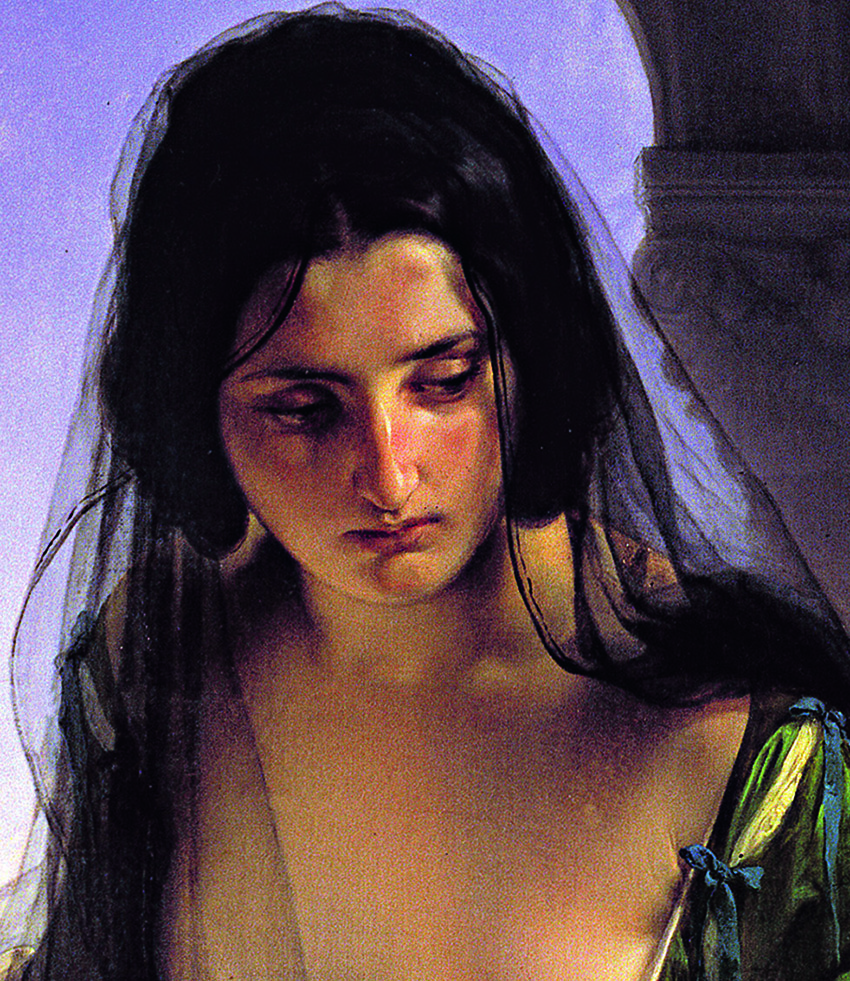
La Meditazione
Francesco Hayez. La Meditazione. 1851. Olio su tela, 92,3 x 71,5 cm
Verona, Musei Civici, Galleria d’Arte Moderna Achille Forti
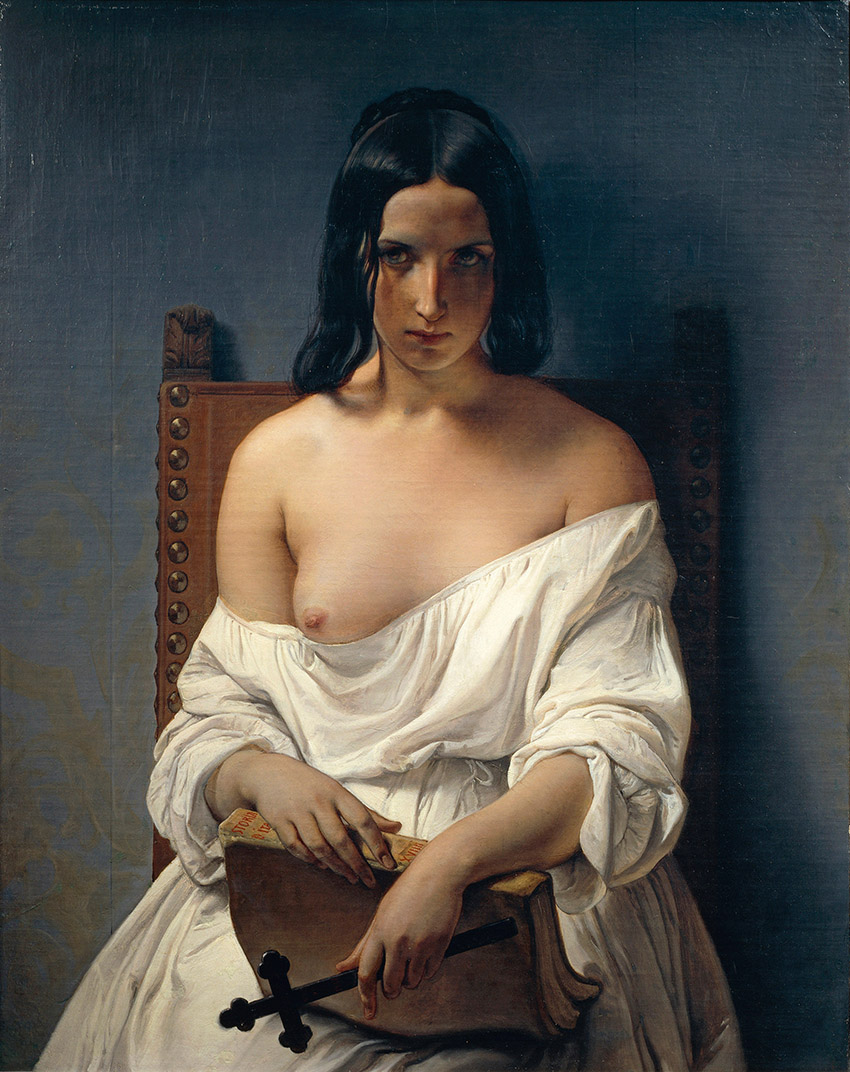
La Meditazione: detail of figure and clothing
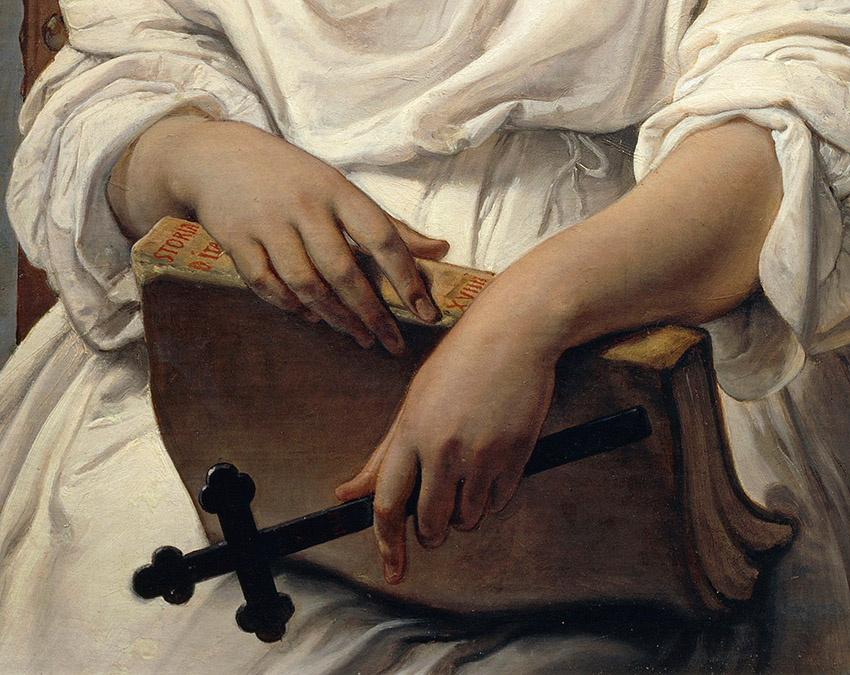
La Meditazione: detail of the face
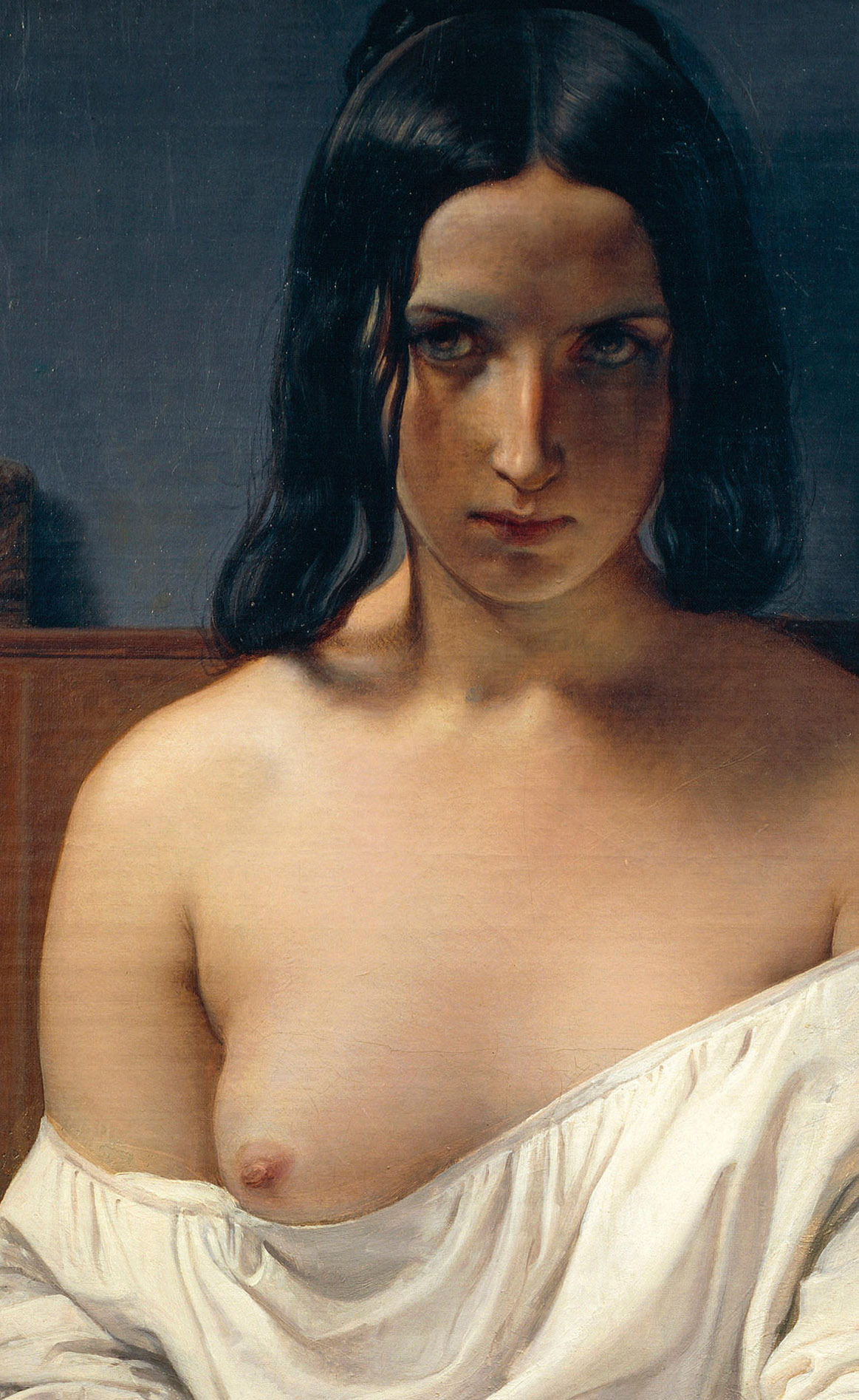
La Maddalena penitente
Francesco Hayez. La Maddalena penitente.1833. Olio su tavola, 118 x 149 cm
Milano, Galleria d’Arte Moderna
The equally troubled execution had finally led to a very high achievement in the rendering of the movements and gestures of the figures, in the superb relationship between the nude and the drapery.
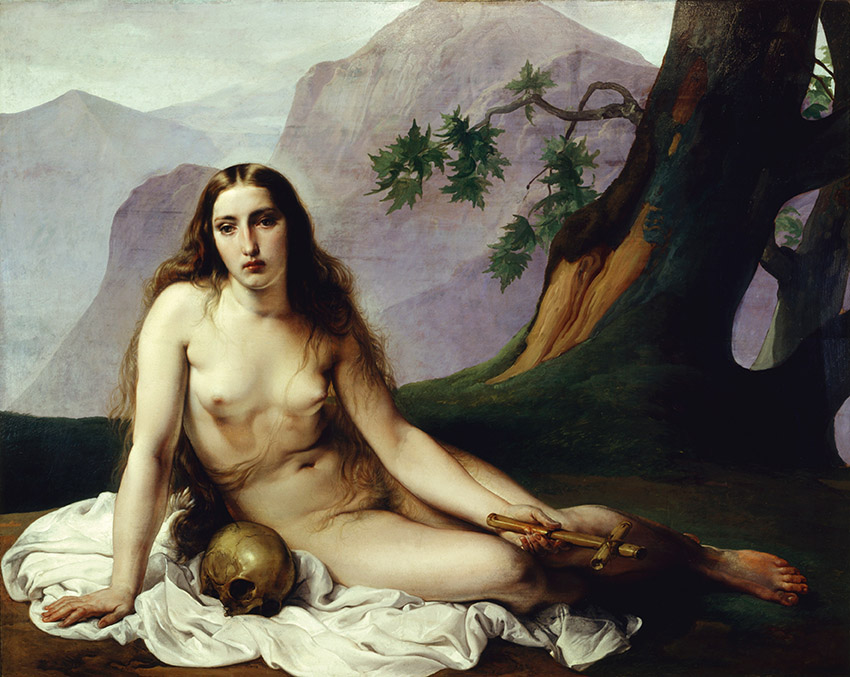
La Maddalena penitente: detail of the figure
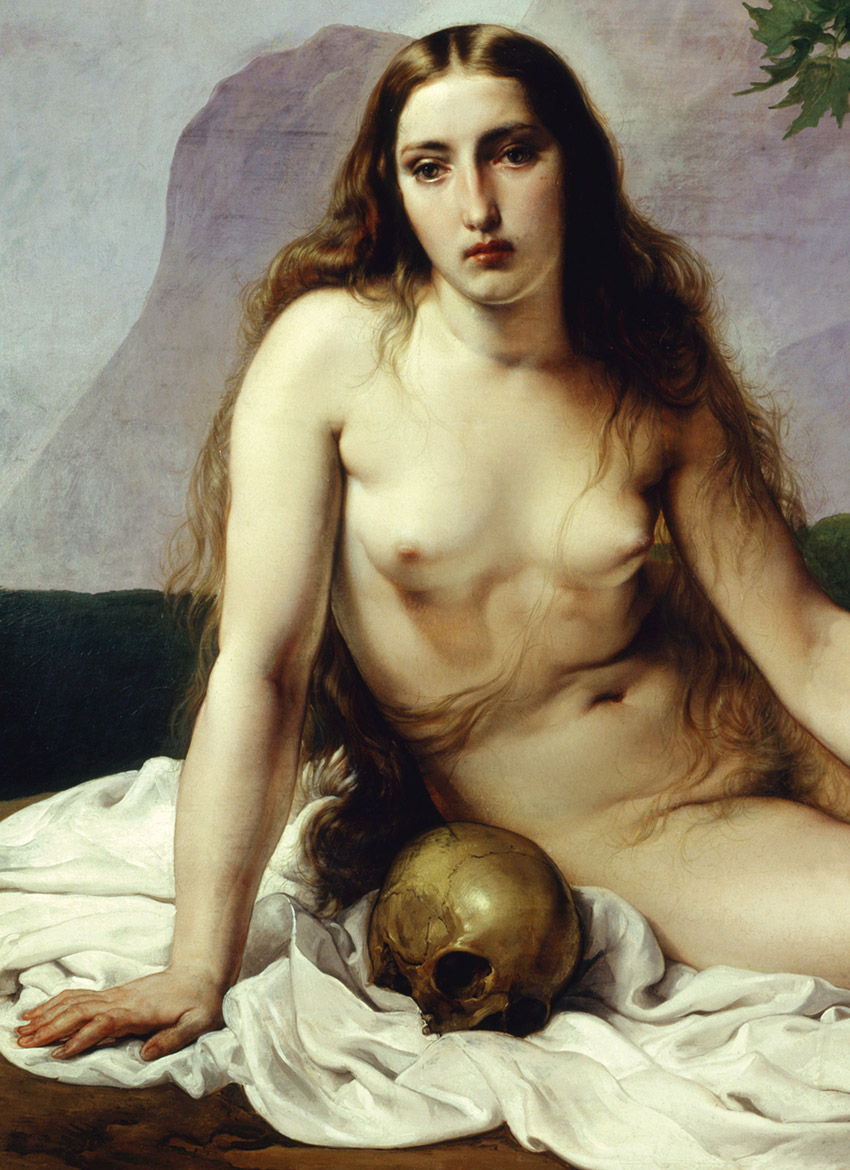
La Maddalena penitente: detail of the face
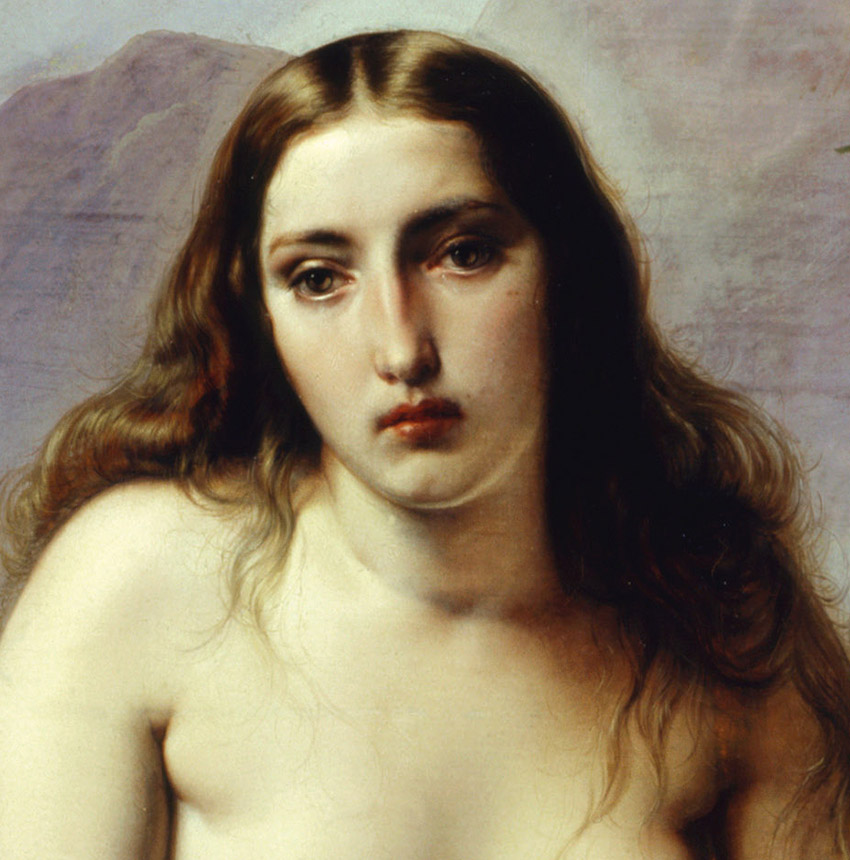
Il Consiglio alla Vendetta
Francesco Hayez. Il Consiglio alla Vendetta. 1851. Olio su tela, 237 × 178 cm.
Liechtenstein, The Princely Collections, Vaduz-Vienna
© Liechtenstein. The Princely Collections, Vaduz-Vienna
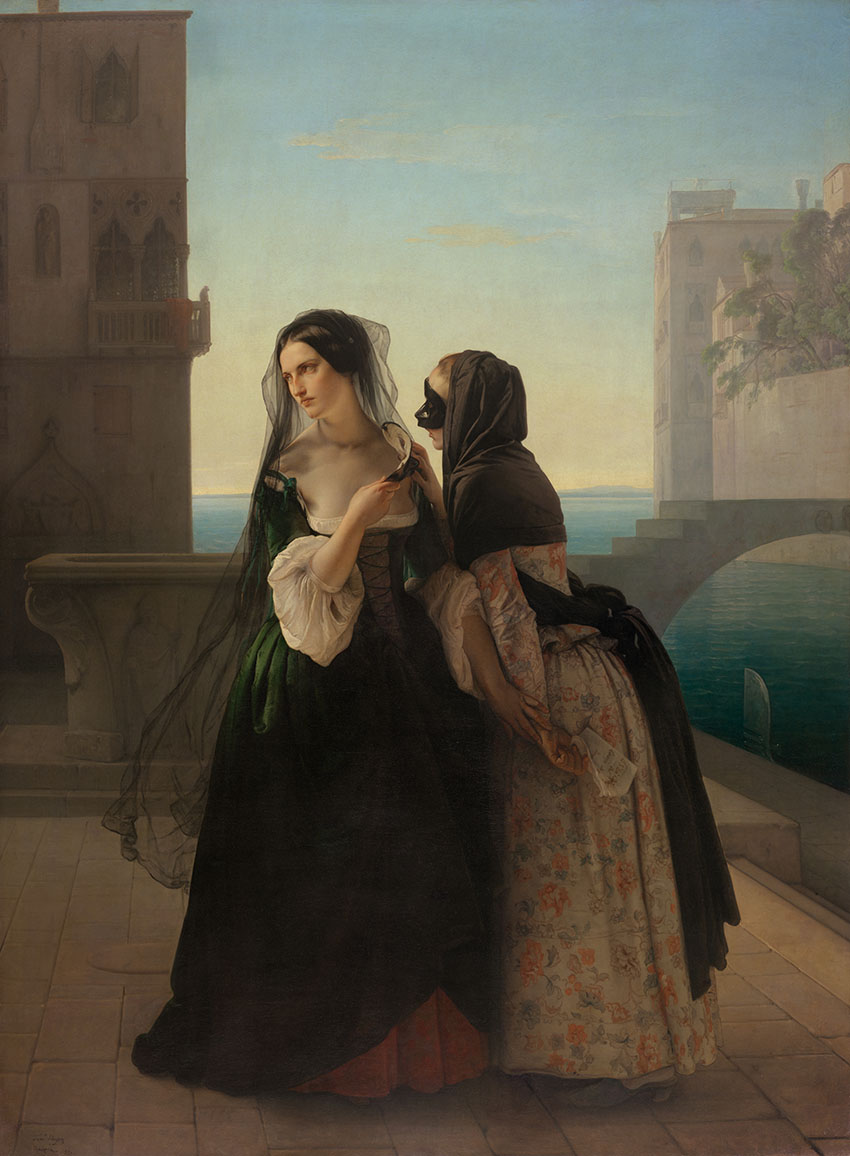
Il Consiglio alla Vendetta: detail of the figures
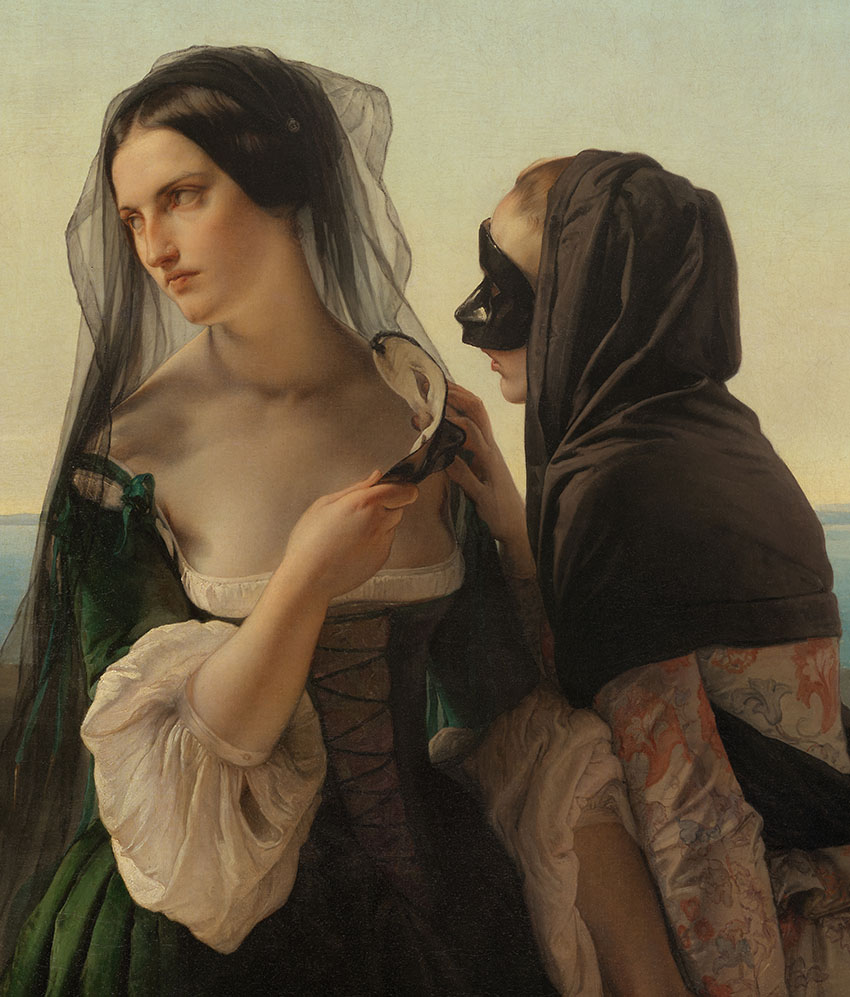
Il Consiglio alla Vendetta: detail of the face
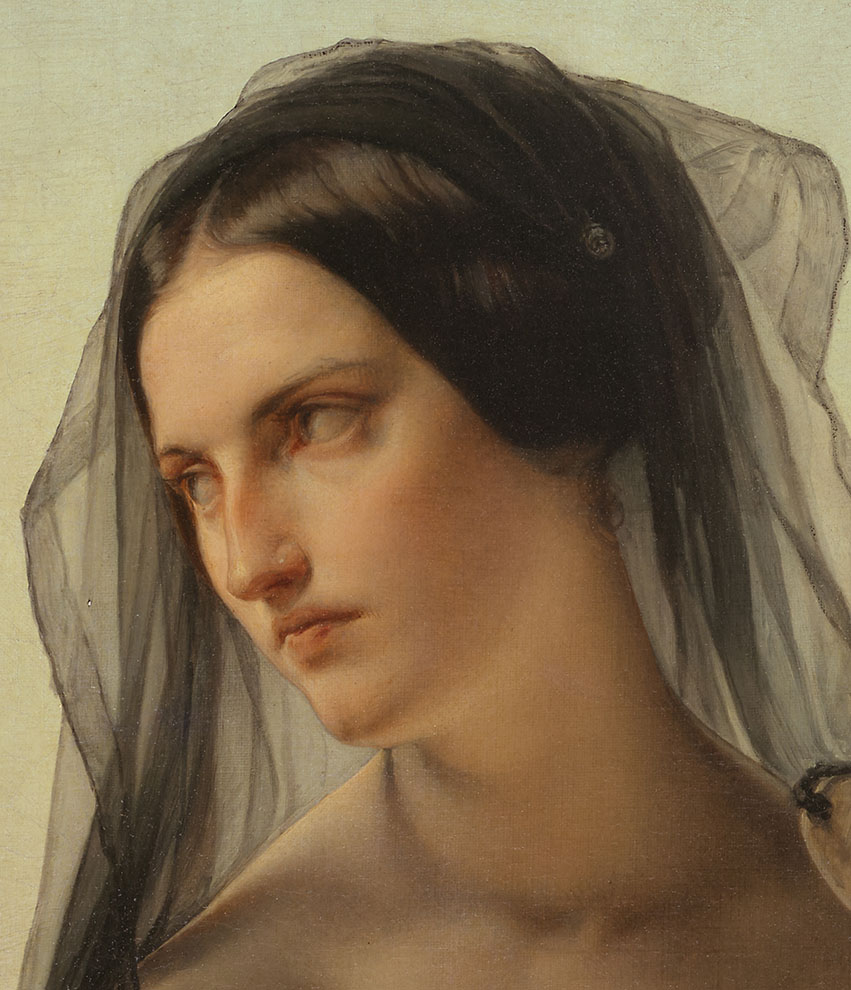
Ritratto di Carolina Zucchi (L’ammalata)
Francesco Hayez. Ritratto di Carolina Zucchi (L’ammalata) (Carolina Zucchi a letto) 1822
Olio su tavola, 60 x 49,5 cm. Torino, GAM – Galleria Civica d’Arte Moderna e Contemporanea.
Su concessione della Fondazione Torino Musei (foto: Studio Fotografico Gonella 2009)
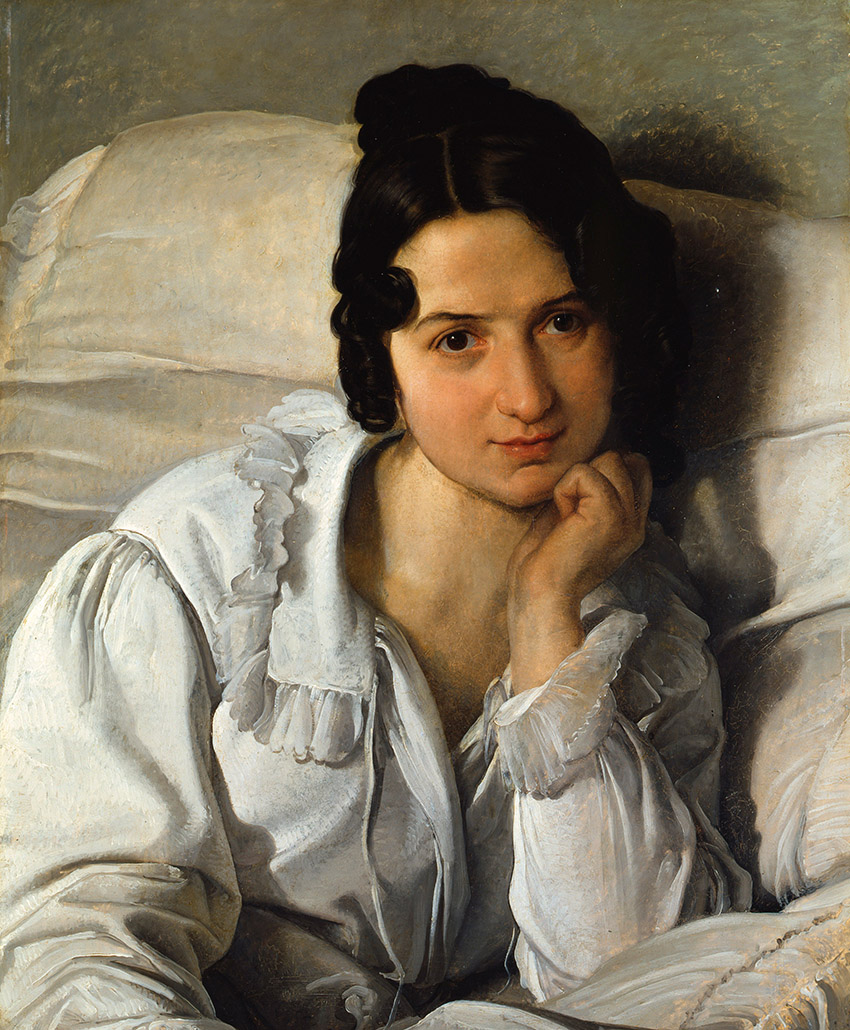
Ritratto di Carolina Zucchi: detail of the face
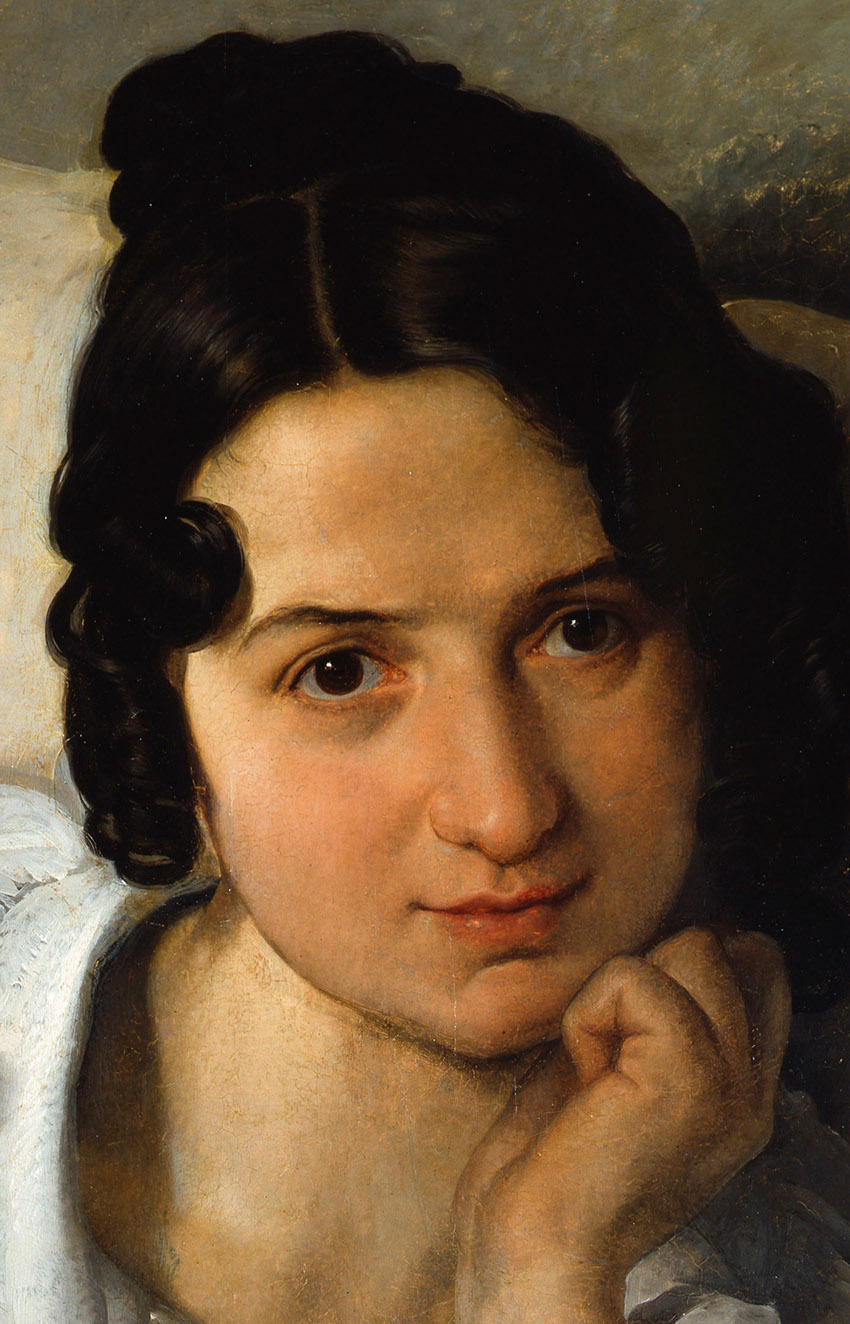
L’Angelo annunziatore (L’angelo ammonitore)
Francesco Hayez. L’Angelo annunziatore (L’angelo ammonitore). 1824.
Olio su tavola, 59,5 x 49,5 cm. Torino, GAM – Galleria Civica d’Arte Moderna e Contemporanea, Fondazione Guido ed Ettore De Fornaris. Su concessione della Fondazione Torino Musei (foto: Studio Fotografico Gonella 2012)
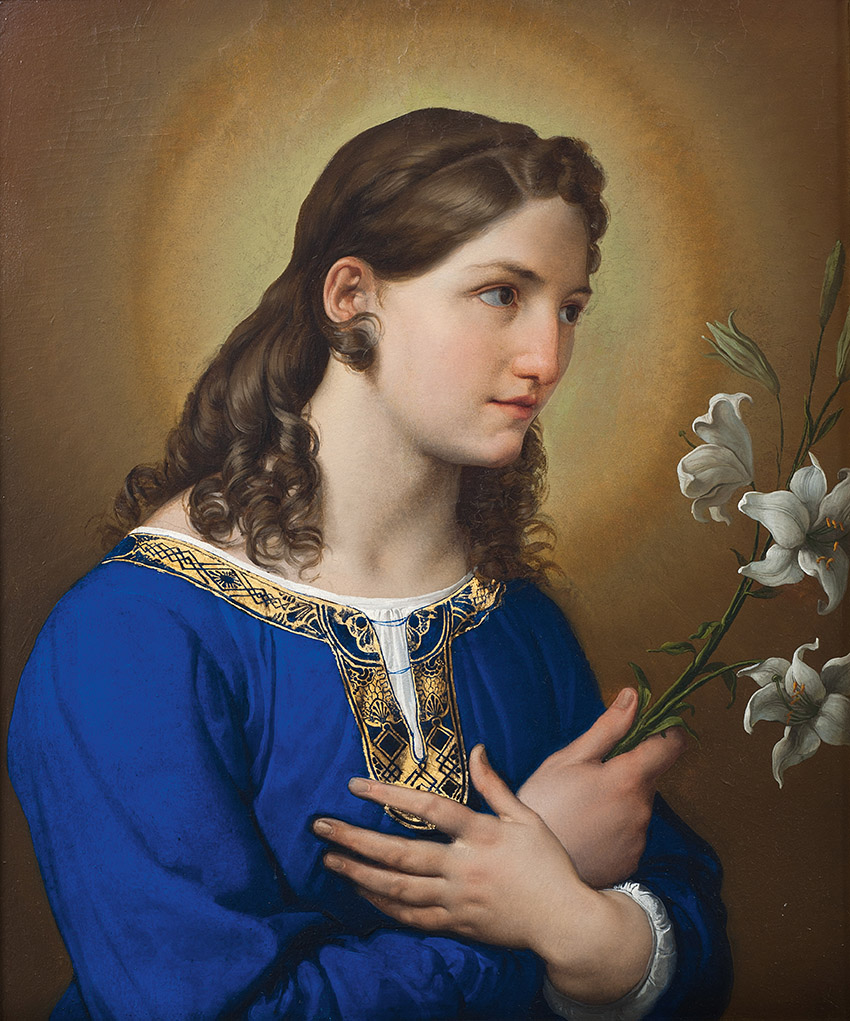
L’Angelo annunziatore: detail of the face
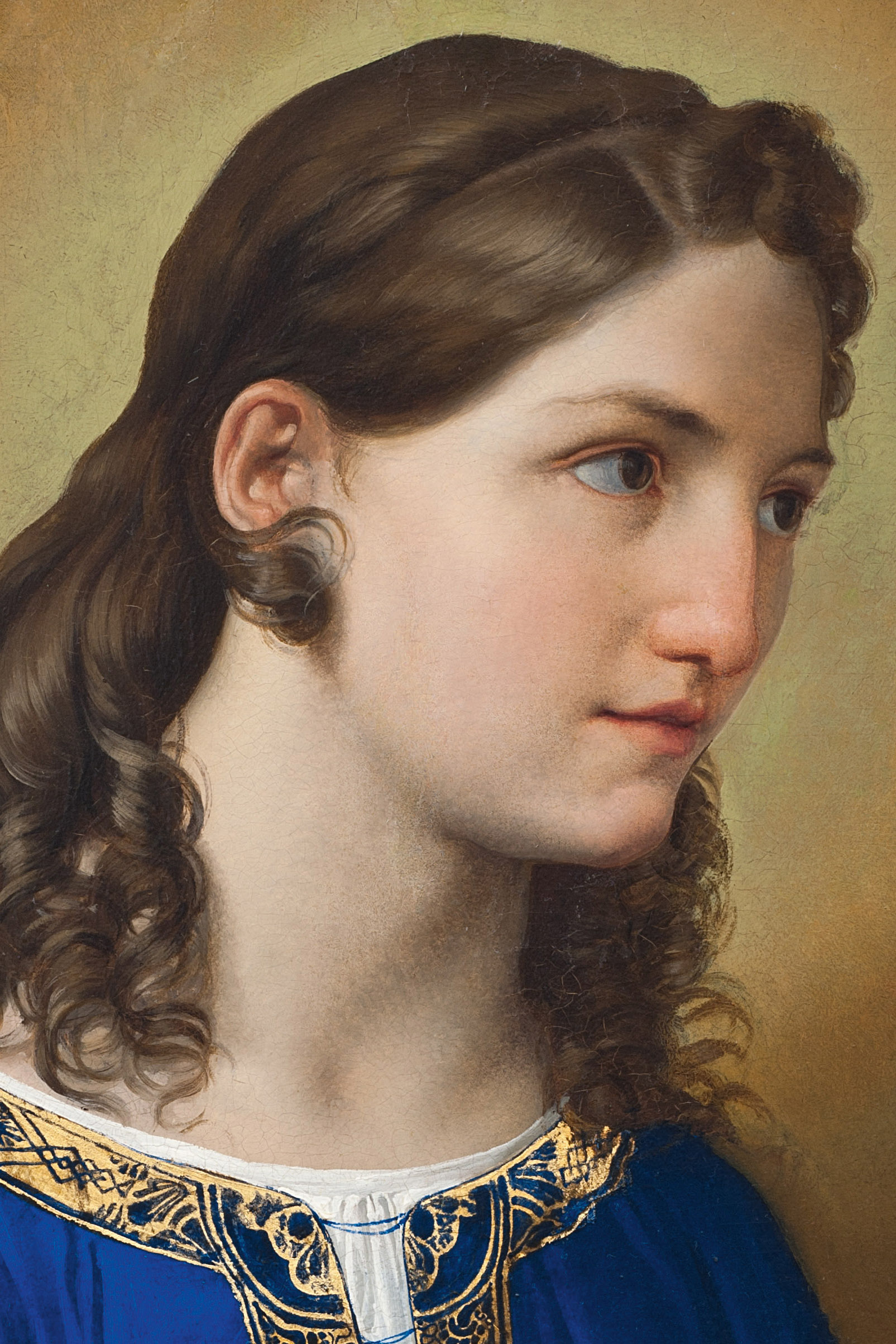
L’Angelo annunziatore: detail of the hands
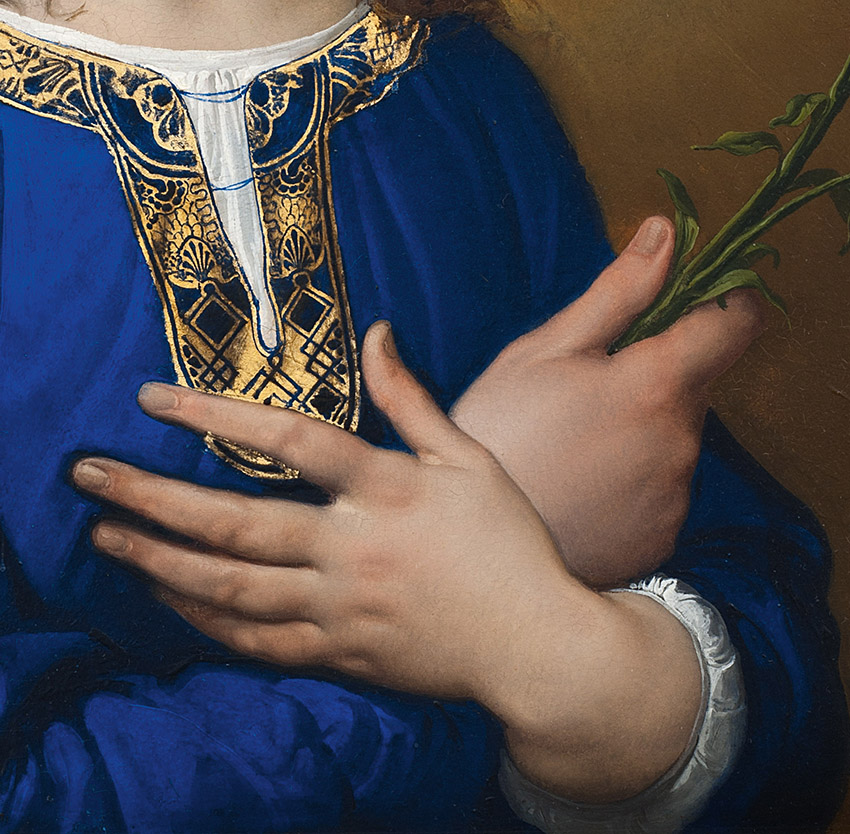
Studio per “La Maddalena penitente”
Francesco Hayez. Studio per “La Maddalena penitente”, 1833 ca.
matita e biacca su carta, 210 x 165 mm. Venezia, Fondazione Musei Civici di Venezia,
Gabinetto dei disegni e delle stampe, Ca’ Rezzonico
Documented by dozens of drawings, pencil sketches, visual notes, testifying to a
working practice founded on the recovery of the great pictorial tradition models and the
uninterrupted re-elaboration of his own inventions. 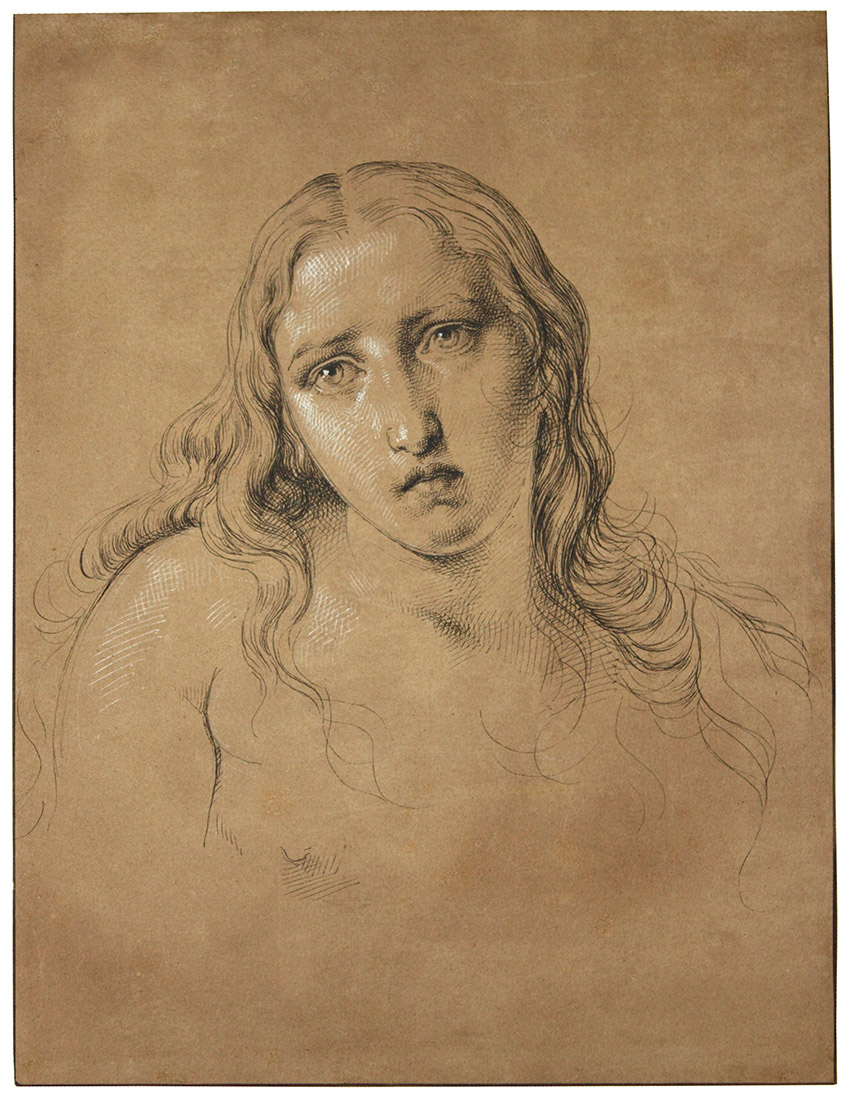
Studio per “La Maddalena penitente”: detail of the face
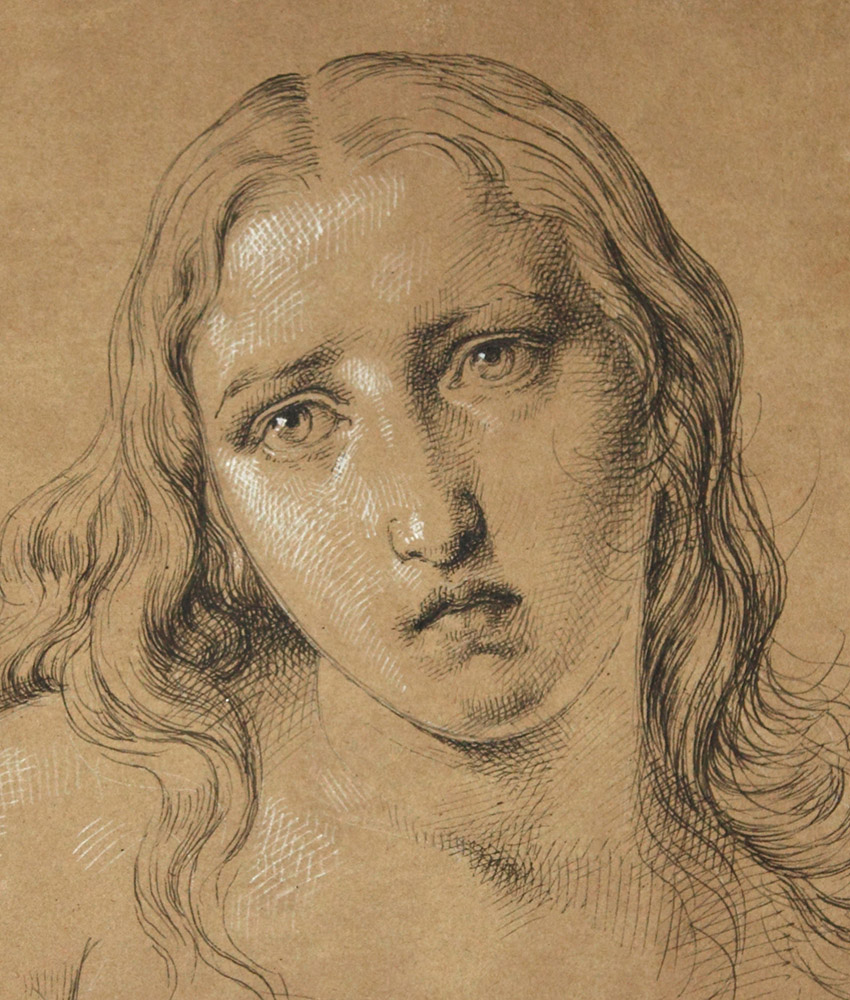
Tamar di Giuda
Francesco Hayez. Tamar di Giuda. 1847
Olio su tela, 112 x 84,5 cm. Varese, Musei Civici
Biblical themes were also prominent in Hayez’s repertoire because they allowed the rendering of costumes and atmospheres that bordered on the 19th-century passion for the Orient.
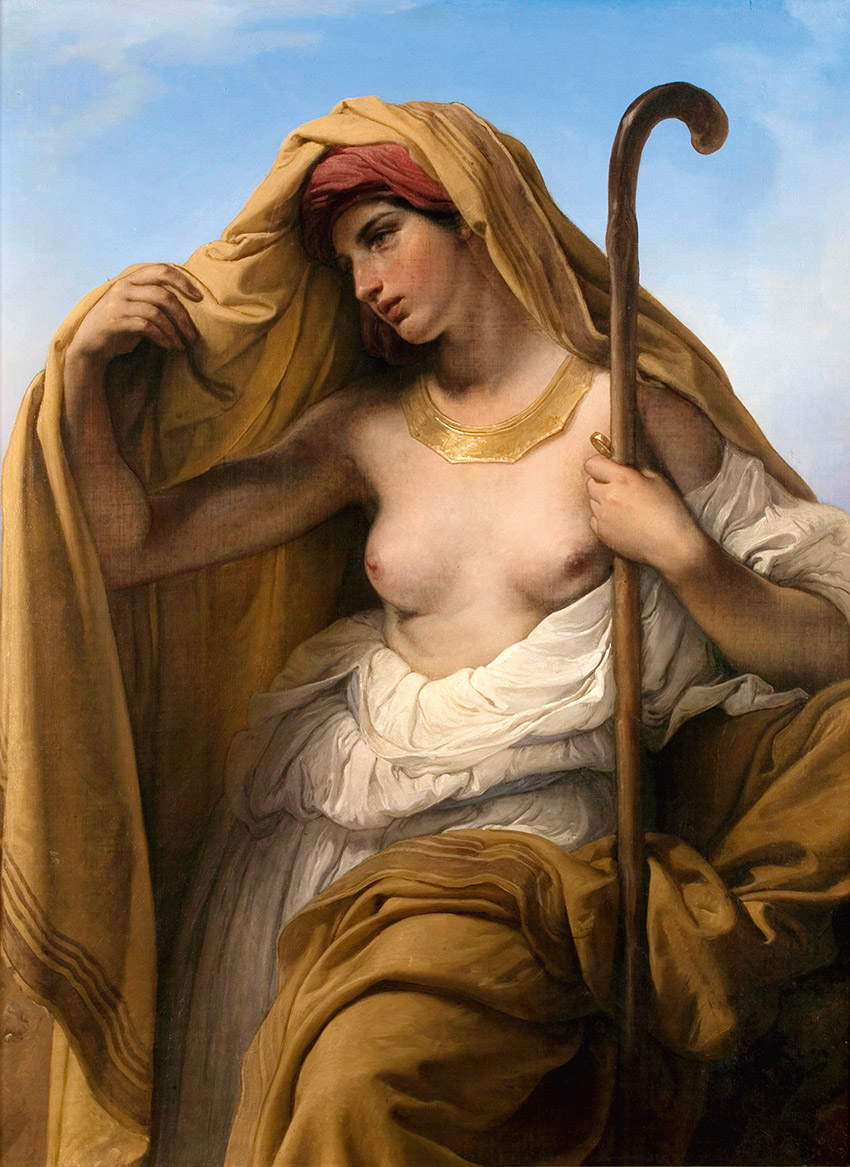
Tamar di Giuda: detail of the face
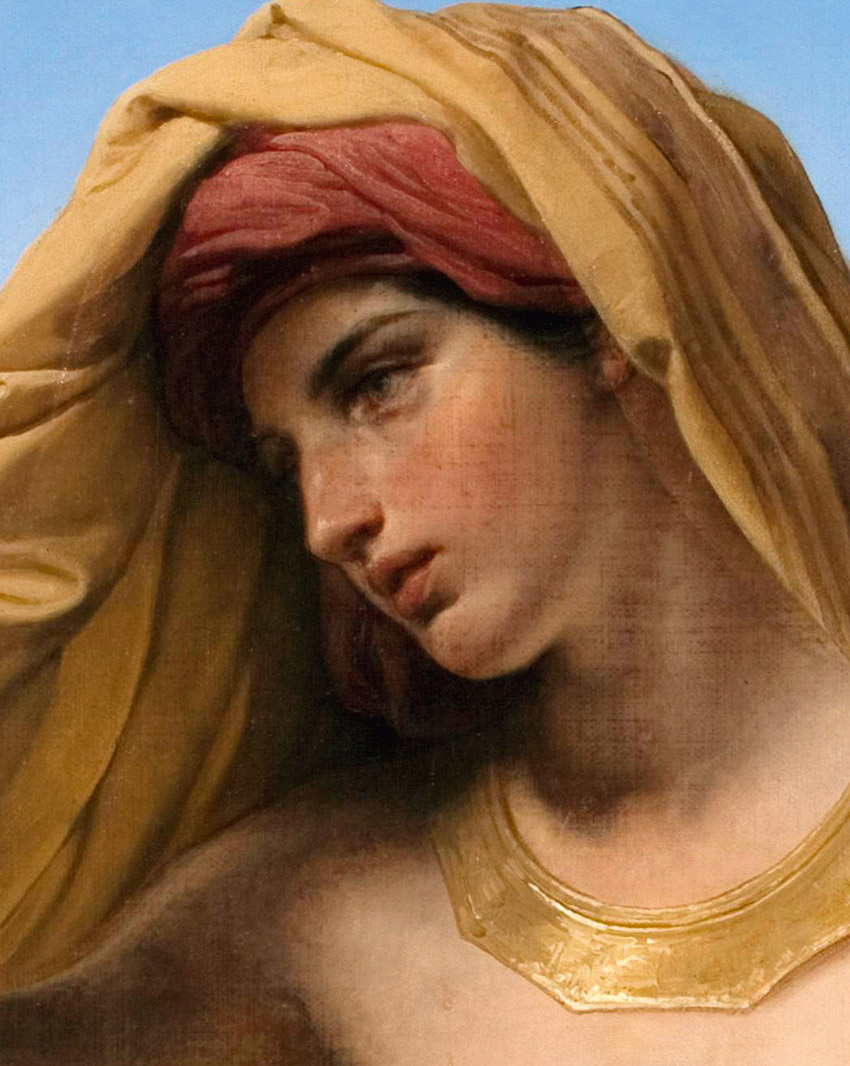
Laocoonte
Francesco Hayez. Laocoonte, figlio di Priamo e sacerdote di Apollo,
vittima, coi figli, della vendetta di Minerva, per cui partirono
due grossi serpenti da Tenedo per avvinghiarli a morte nelle loro spire.
1812. Olio su tela, 175 x 246 cm, Milano, Accademia di Belle Arti di Brera
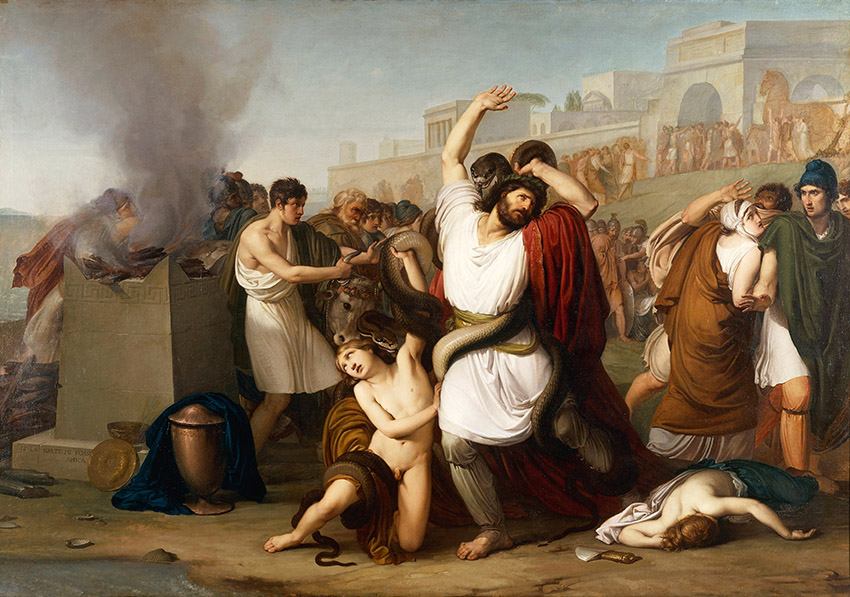
Laoconte: detail
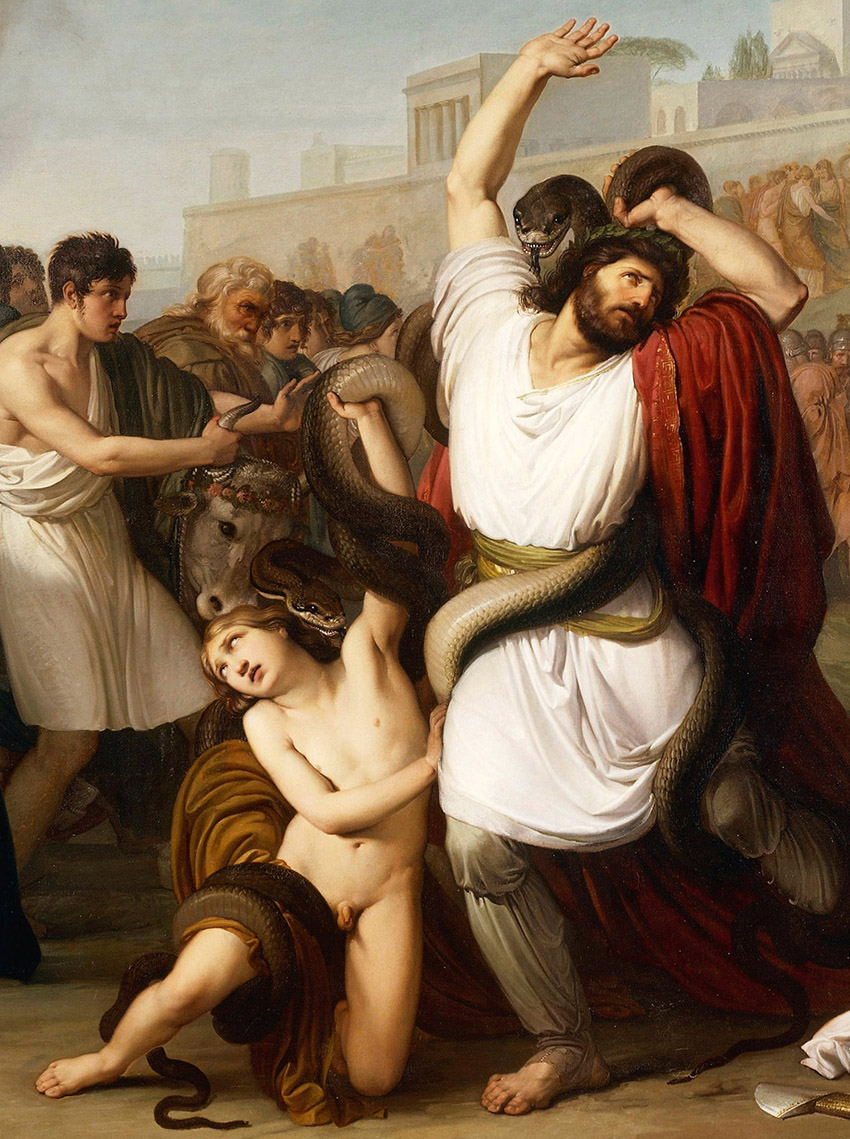
Imelda de’ Lambertazzi
Francesco Hayez. Imelda de’ Lambertazzi. 1853
Olio su tela, 122 x 126 cm. Collezione privata, courtesy Enrico Gallerie d’Arte
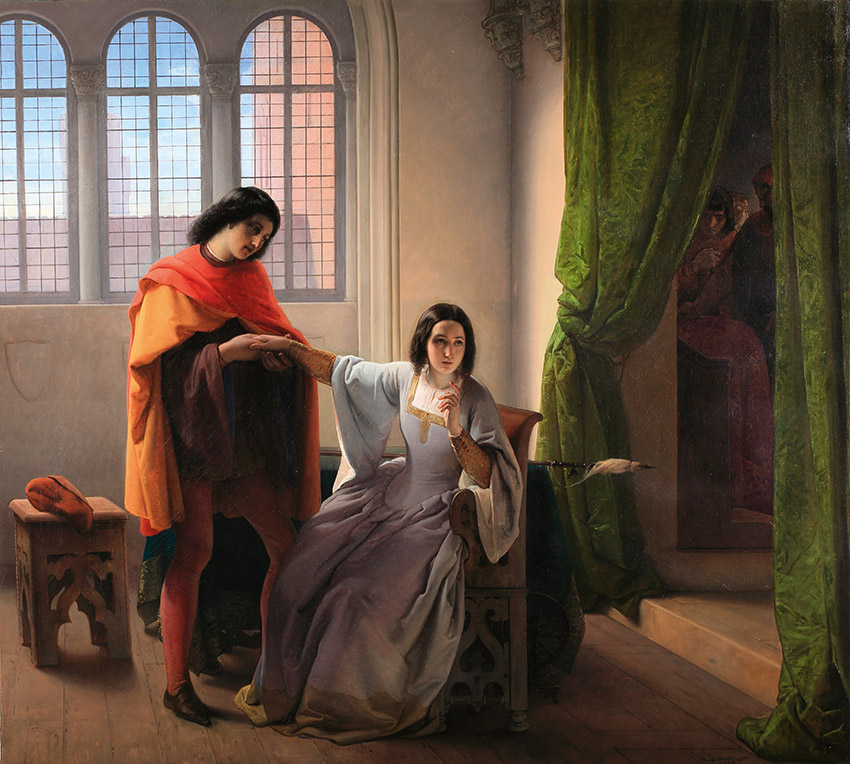
Imelda de’ Lambertazzi: detail
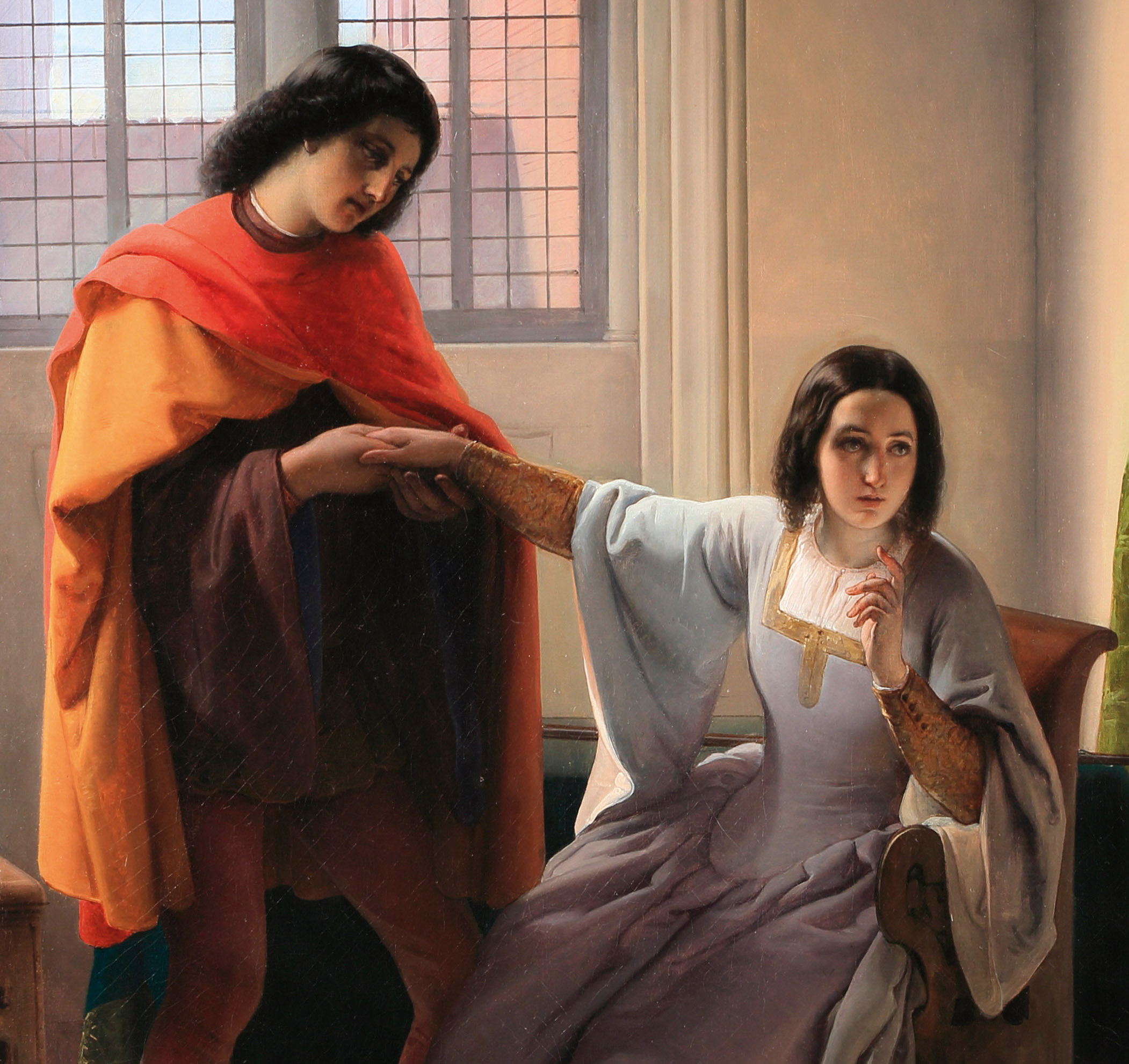
Imelda de’ Lambertazzi: detail of te face
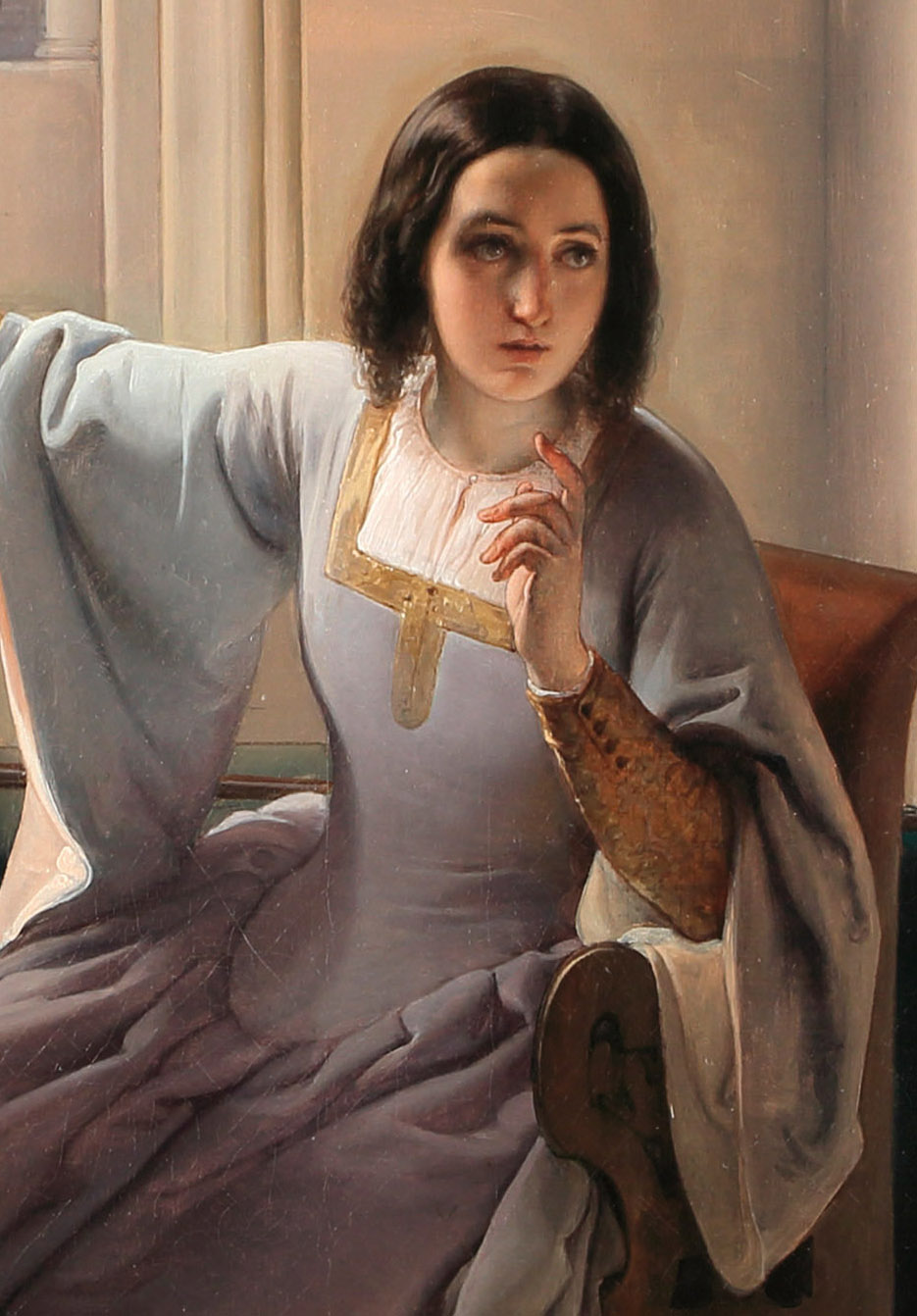
Ritratto del pittore Francesco Hayez
Francesco Hayez. Un leone e una tigre entro una gabbia con il ritratto del pittore.
1831. Olio su tavola, 43 x 51 cm. Milano, Museo Poldi Pezzoli
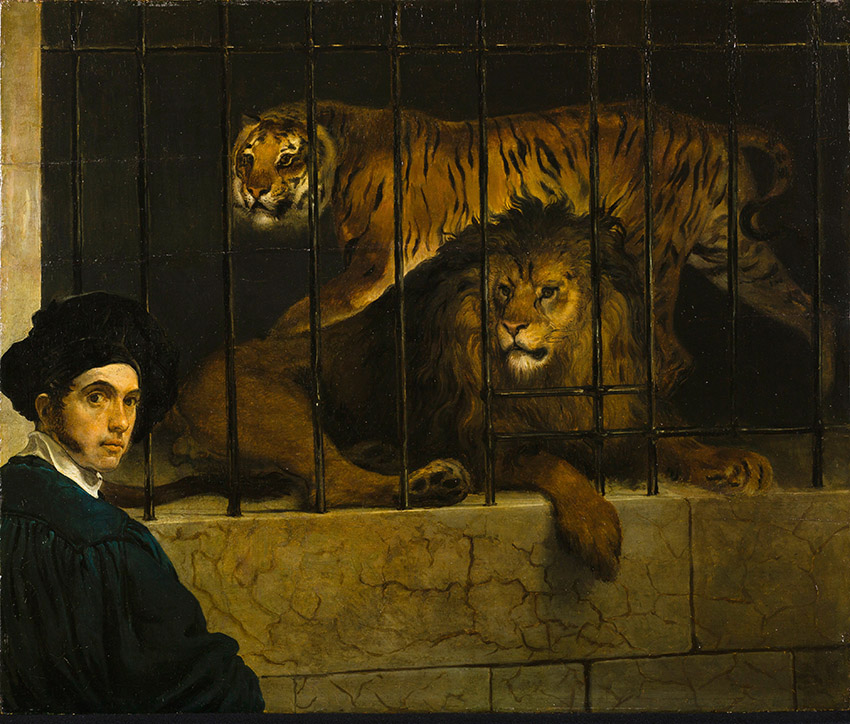
Ritratto del pittore Francesco Hayez: detail of the face
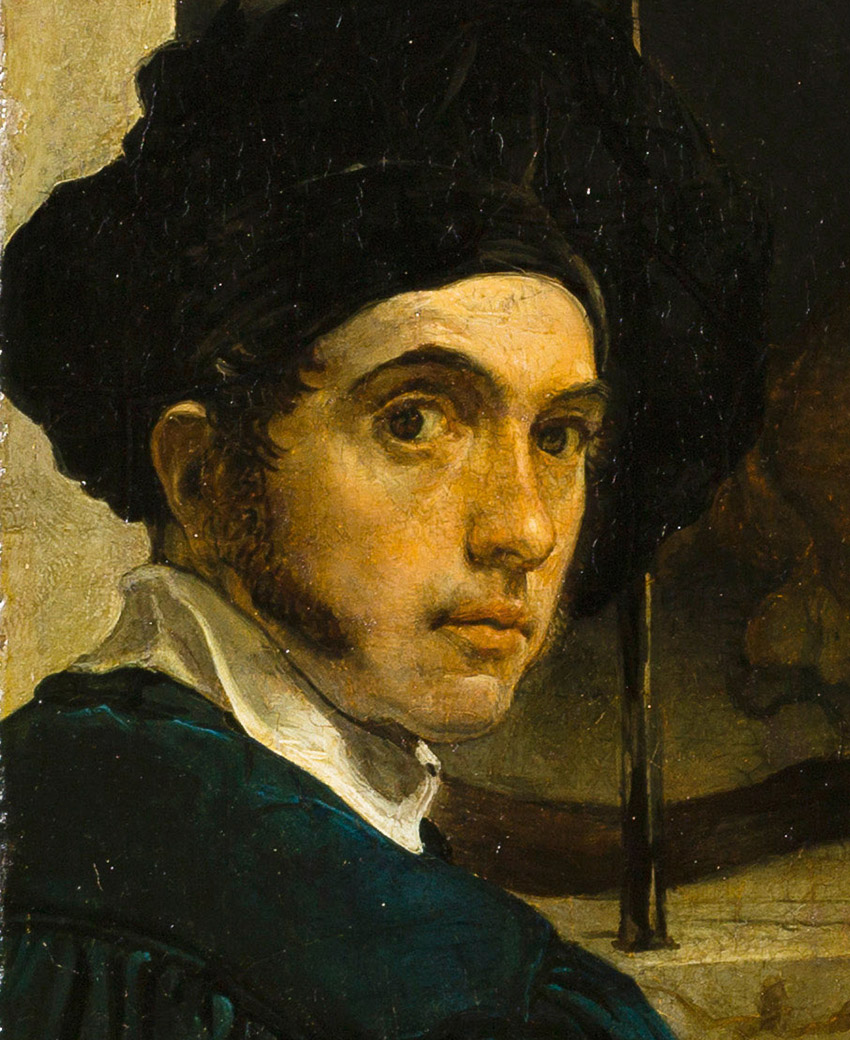
Ritratto del pittore Francesco Hayez: detail
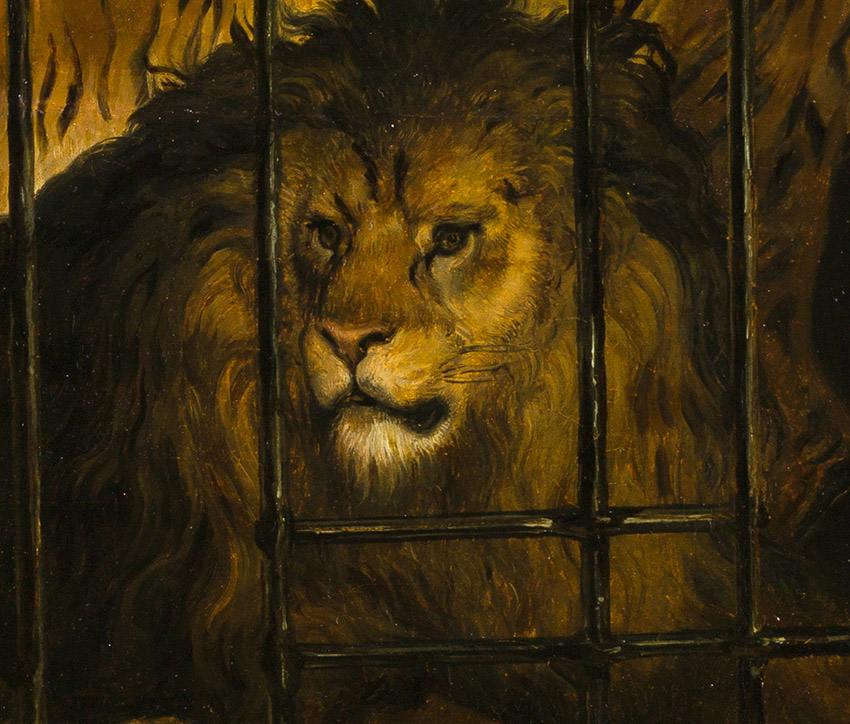
Portrait of the Contessina
Antonietta Negroni Prati Morosini
Francesco Hayez. Ritratto della contessina Antonietta Negroni Prati Morosini bambina.
1858. olio su tela, 132 x 107 cm. Milano, Galleria d’Arte Moderna
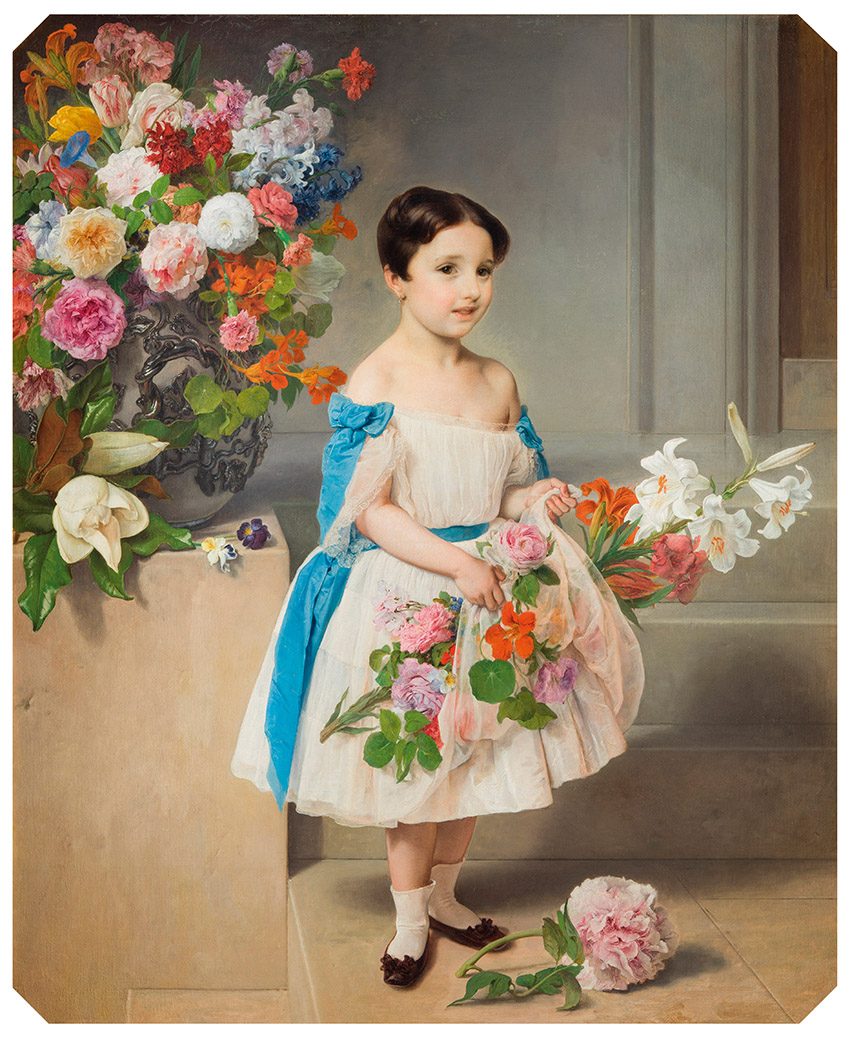
Portrait of the Contessina: detail
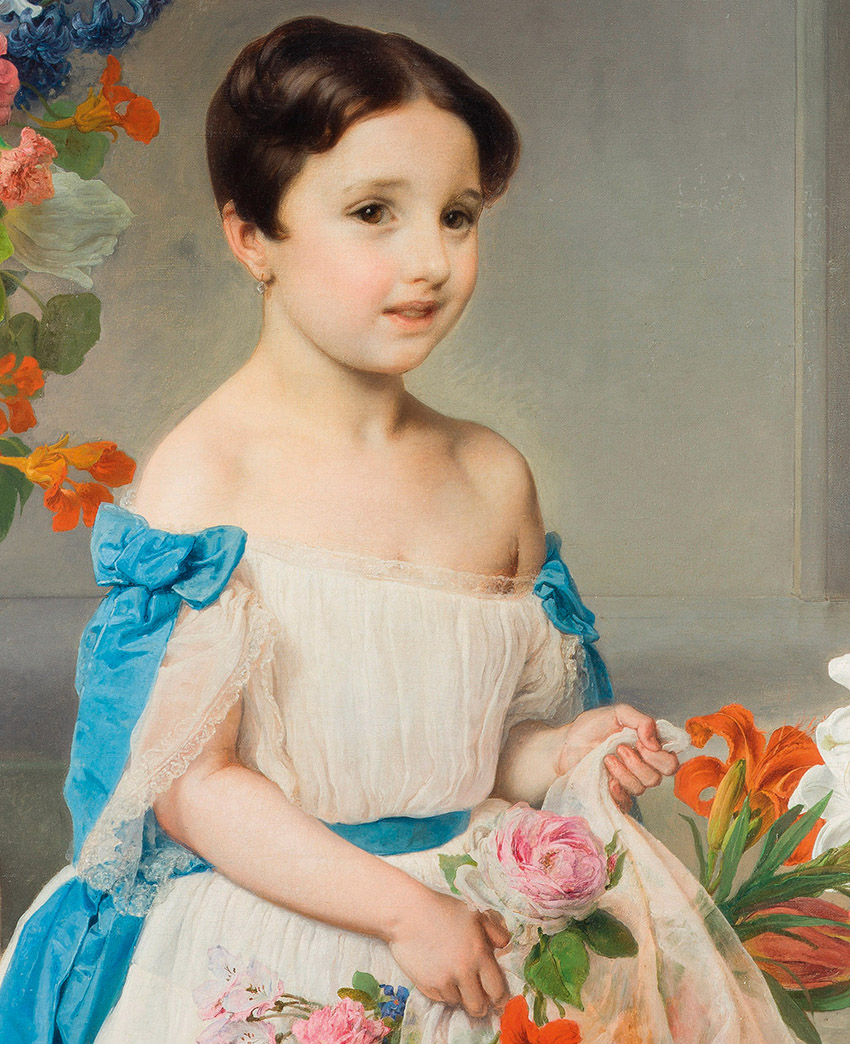
Portrait of the Contessina: detail of the face
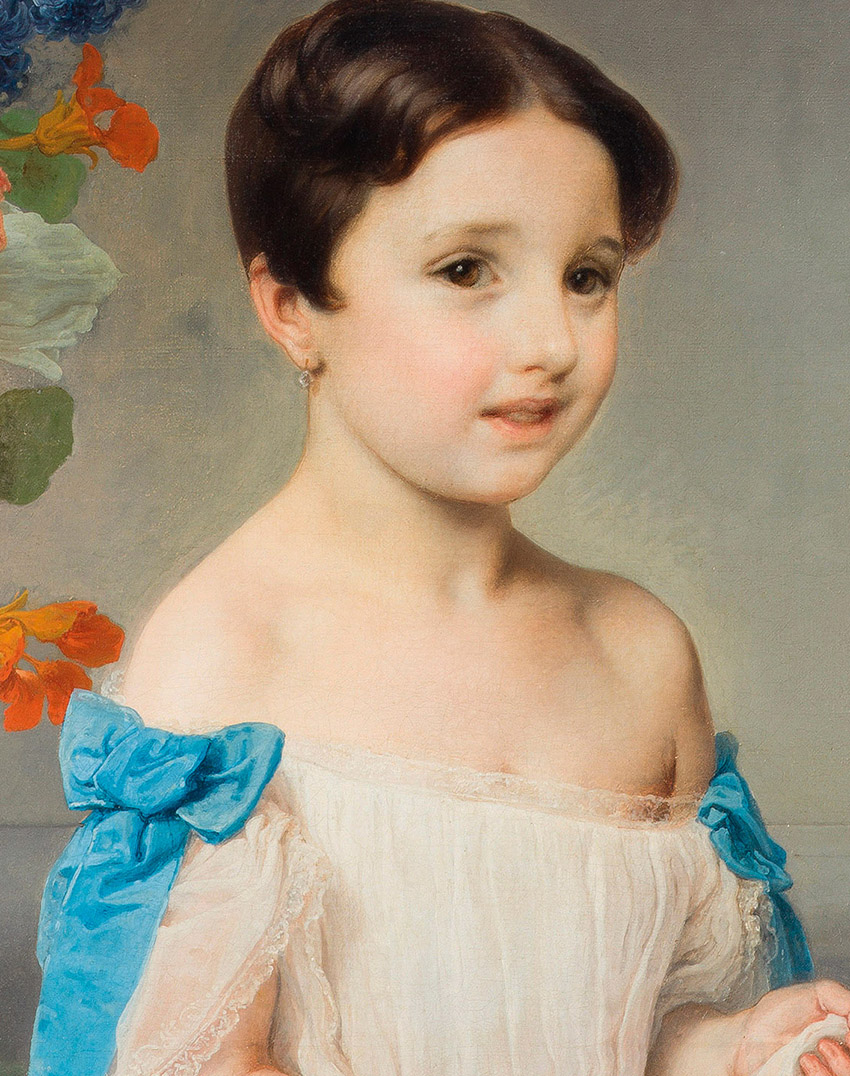
Portrait of the Contessina: detail
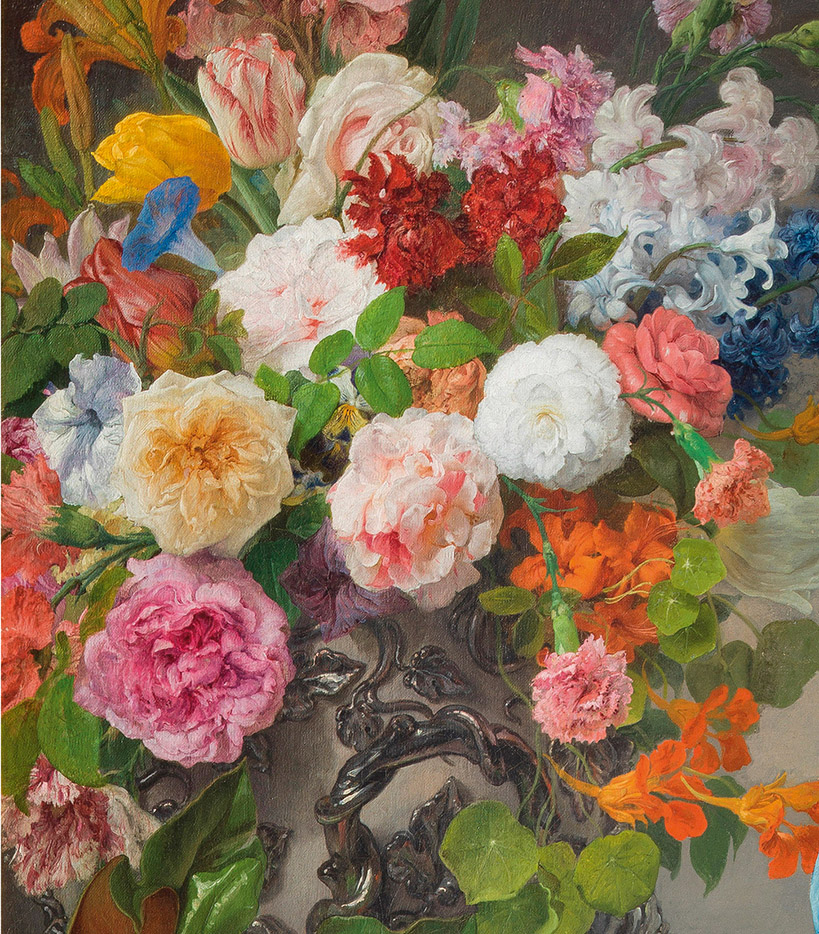
Francesco Hayez
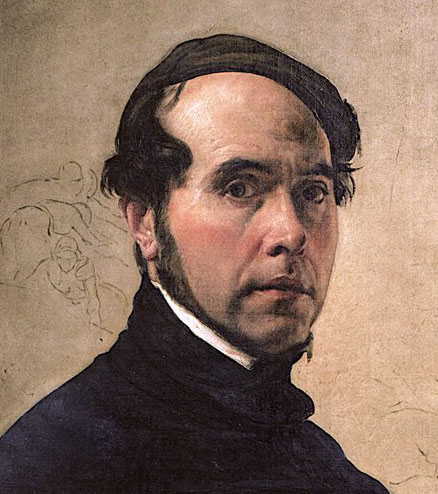
Self-portrait
at the Age of 48
“Francesco Hayez, born in Venice in 1791 and as a child witness to the fall of the ancient Republic, spent most of his life and achieved his success in Milan, where he passed away in 1882, bursting with age and glory like a new Titian, the painter to whom he liked to compare himself.
91 years of intense life as a painter.
In his very long life, almost a century, he was a leading player in epochal changes, witnessing the transition from Neoclassicism to Romanticism, of which he was one of the creators, to the new realist movements that emerged after the Unification of Italy. He is to be considered, together with Manzoni and Verdi, among the Fathers of the Country, not only because of his art, but also because of his political ideas.
Pupil of the great sculptor Canova.
His training in Rome under Canova, who supported him with the conviction that he would become the artist capable of restoring Italian painting to its lost greatness, just as he had done in sculpture, was fundamental.
Admired by the greats of his time.
This was recognised by his greatest supporters, such as Stendhal who considered him ‘the greatest living painter’ and Mazzini who consecrated him as the interpreter of national aspirations. He lived an exceptional life both from a personal point of view, emerging from humble beginnings and abandonment by his family, and had an outstanding career during which he engaged in dialogue with the great artists of his time, scholars, writers and musicians. His many loves and a great vital impulse are documented in his painting, which expressed a series of universal values, celebrating female beauty and the power of love, as in the series dedicated to Romeo and Juliet”, comments curator Fernando Mazzocca.
Exhibition curated by Fernando Mazzocca and Elena Lissoni
In collaboration with the Brera Academy of Fine Arts
Lenders:The exhibition was made possible thanks to numerous institutional lenders: The Brera Art Academy, Milan; the Venice Art Academy; The San Luca National Academy, Rome; Tadini Academy, Nineteenth-century Museum, Lovere; National Braidense Library, Milan; Cariplo Collection Foundation, Italian Galleries – Piazza Scala, Milan; Franco Maria Ricci Collection, Labirinto della Masone, Fontanellato; Venice City Museums Foundation, Cabinet of Drawings and Prints, Ca’ Rezzonico, Venice; Uffizi Galleries, Florence; GAM – Civic Gallery of Modern and Contemporary Art, Turin; GAM – Modern Art Gallery, Milan; MAG – Museo Alto Garda, Riva del Garda; Musée Faure, Aix-les-Bains; Municipal Museums of Ancient Art, Bologna; Visconteo Castle Civic Museums, Pavia; Civic Museums, Varese; Verona Civic Museums – Achille Forti Modern Art Gallery; San Martino National Museum, Naples; Poldi Pezzoli Museum, Milan; Revoltella Museum, Trieste; Vincenzo Vela Museum, Ligornetto; Liechtenstein. The Princely Collections, Vaduz-Vienna.
 https://www.gamtorino.it/it/
https://www.gamtorino.it/it/